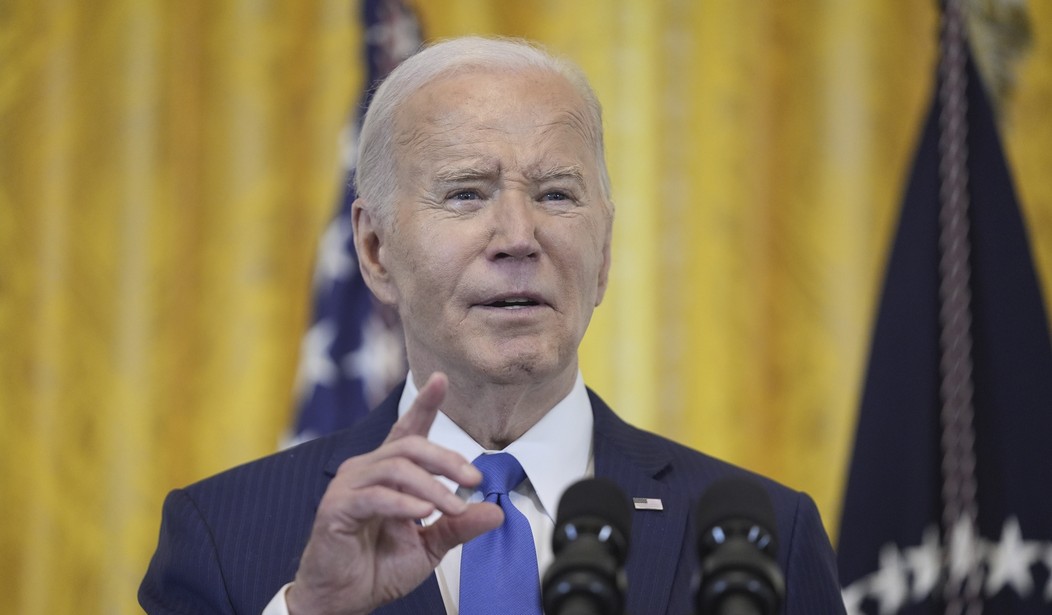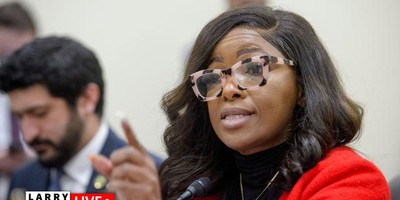"Neither a borrower nor a lender be."- Polonius to his son Laertes in "Hamlet"
It may be too late given the number of Americans who have willingly allowed themselves to become dependent on government more than themselves, but it's worth trying.
Our $34 trillion debt is unsustainable, according to most economists. If we don't act soon, we will be worse off than we are now. Our economy could collapse. The economic future is not bright if we continue down our current path. According to Statista Research," By 2034, the gross federal debt of the United States is projected to be about $54.39 trillion."
President Biden wants to raise taxes again on "the rich" and corporations without cutting spending. Revenue is not in short supply. Fiscal discipline is. A change in spending will require a change in attitude about what government should and should not do.
The U.S. has experienced a fiscal year-end budget surplus five times in the last 50 years, most recently in 2001. Debt is bipartisan and it will take a bipartisan approach to reduce or eliminate it. During President Biden's term, national debt has increased by$4.7 trillion (he wants to spend more), a rise of 16.67 percent as of last September. During Donald Trump's one- term presidency, the national debt increased by $8.18 trillion, a 40.43 percent boost. Part of that was spending to fight Covid-19, part was the fallout from tax cuts for the wealthy. Still, this was less of an increase than Barack Obama (69.98%) and George W. Bush (105.8%), but each of them served two terms. Part of Bush's spending was on Afghanistan and Iraq after 9/ 11.
Recommended
Only 14 of 45 American presidents have overseen a decrease in debt. Calvin Coolidge was the last one. That was 15 presidents ago. Coolidge said: "... a good many proposals are made by people that have very excellent things that they would like to have the Government do, but they come from people that have no responsibility for providing ways and means by which their proposals can be carried out. I don't think in all my experience, which has been very large with people that come before me in and out of Government with proposals for spending money, I have ever had any proposal from anyone as to what could be done to save any money."
Why not form a group of consultants I would call a "what works coalition." Invite historians, scientists, economists, people of good character and others who love America and ask them to examine government spending, separating the "wheat from the chaff," the necessary from the unnecessary. They could issue a report to the public and Congress ridiculing wasteful and needless spending and pressure our elected representatives to end those underperforming or nonperforming programs, earmarks and agencies as a patriotic gesture. And yes, Social Security and Medicare must be reformed to save it for the future. The media could help if they would. Weaning people from addiction to government will take time, though some have been able to go "cold turkey" when it comes to other addictions.
Most importantly, what is needed is a change in attitude back to the view some previous presidents, the Founders and the public had toward government. Just as we don't see a doctor when we are having car trouble, neither should we look to government to solve problems best dealt with individually. Government can encourage good choices and penalize bad ones (lower taxes on the successful is one reward and allowing people to suffer the consequences of bad choices - within reason -- is another). Government should not subsidize bad choices, as if good and bad are equal. That will ensure more bad choices and fewer good ones.
If we don't start making good choices now and seriously reduce our debt there may be no way back. History teaches us that lesson. Look it up.

























Join the conversation as a VIP Member